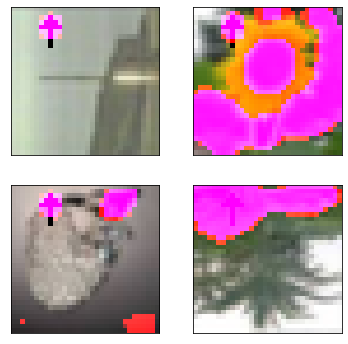The experiment on CIFAR-10 is part of the paper, Automatic shortcut removal for self-supervised representation learning
Required python packages are in requirements.txt. Install using conda:
conda install --file requirements.txt
Possible commandline arguments are defined and described in arguments.py.
The default values are:
downstream: False (whether training downstream task or not)
clean_data: False (whether training on clean data or not)
shortcut: "arrow" (choose between "arrow" and "chromatic")
lens_usage: False (whether training with Lens network or not)
full_adversarial: False (whether training with full adversarial loss or not)
lambda_term: 1e-10
lr: 0.01
epochs: 50
batch_size: 256
output_dir: 'checkpoints'
To train the pretext task, modify dataset and architecture before running if needed. For example, to train lens network, with --model_name of '001' to name output model file in the output folder.
python train.py --lens_usage --model_name 001
To train downstream task of image classification on CIFAR-10 train dataset using weights from model with --model_name of '001':
python train.py --downstream --model_name 001
Possible commandline arguments are defined and described in arguments.py.
The default values are:
downstream: False (whether evaluating downstream task or not)
lens_usage: False (whether evaluating with Lens network or not)
batch_size: 256
output_dir: 'checkpoints'
A trained model with --model_name of '001' can be evaluated on pretext task of rotation:
python eval.py --lens_usage --model_name 001
A trained downstream model can be evaluated on the image classification task of CIFAR-10 test dataset:
python eval.py --downstream --model_name 001
Use the notebook in folder Visualization to see the difference between original image and the Lens network's output.
@inproceedings{Minderer2020AutomaticSR,
title={Automatic Shortcut Removal for Self-Supervised Representation Learning},
author={Matthias Minderer and Olivier Bachem and Neil Houlsby and Michael Tschannen},
booktitle={ICML},
year={2020}
}

